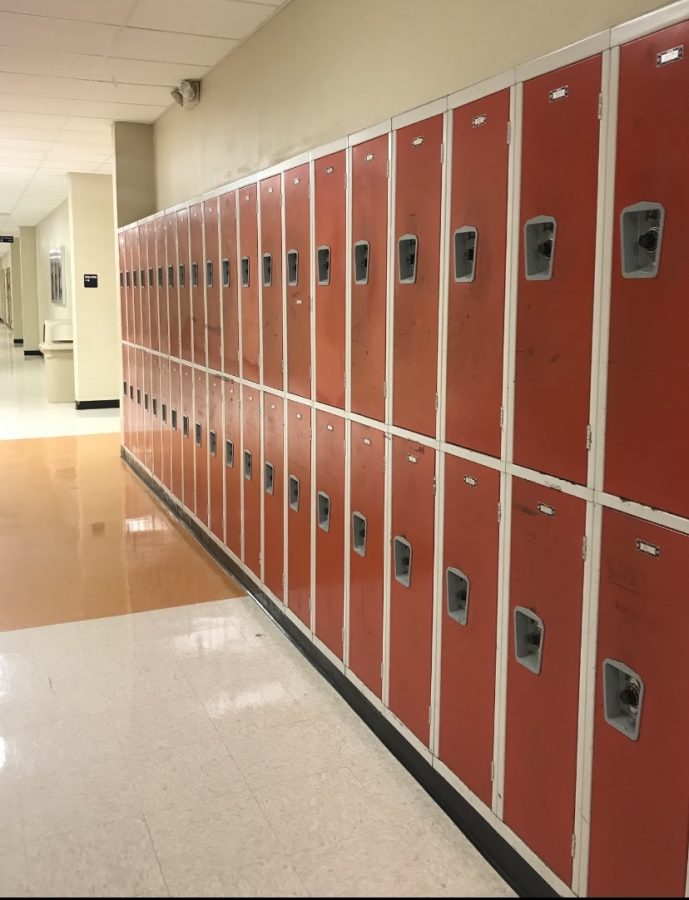Beyond high school
Are schools actually preparing students for the real world?
Some students question if they are really prepared for college.
March 6, 2020
Opinion 1:
Students today are faced with difficult challenges when it comes to after graduation; they are thrown into a world where they don’t know how to deal with important things such as finances and supporting themselves. Often times high schools do have classes for students to learn about finances; however, these classes are elective classes and students enrolling in them due to the pressure of credits required to graduate, leaving no room in their schedules. Students argue that many of the classes they take don’t pertain to what students want to do and what they are going to have to deal with in the real world.
Teachers combat the need of taking all four years of a core class is important because it opens up a variety of options to choose from to see what you like; however, this can be combated with the fact that if a student does not want to have a career in math, they don’t want to take more math class than is necessary. Opening up more spots to kids allows them to look at the options available to them when it comes to picking elective classes that could be fun for them or be part of what they want to do in life. Forcing students to take more core classes isolates the student from having fun in high school and preparing themselves for their career.
Opinion 2:
The argument is a common one, and frankly getting a little tired. Most often in response to a particularly tough math problem or a long essay assignment, one hears the familiar whine of “How does this really help us in the real world?” Another pipes in “I don’t even know how to do taxes.” The class erupts into complaints on the crucial life knowledge they’ve been cheated out of by the American public education school system.
Indeed there are serious gaps in students’ knowledge and basic “street smarts,” from how to cook spaghetti to how to balance a checkbook.
Truth be told, it is difficult to see how trinomials directly translate into the real world. You will never be out grocery shopping and then forced to complete a factoring problem to check out. However the skills you learn from math (besides the actual math) engages logical cortices in your brain. Students learn the logical progression of steps in a mathematical sense.
Benjamin Franklin answered this debate hundreds of years ago: in order to create a progressive society, all members need to be educated. It’s why public education was created in the first place—to make sure knowledge wasn’t limited to the wealthy. Everyone in society needs a basis of general knowledge, and though it may not be absolutely imperative for everyday function in the “real world,” no amount of knowledge is truly useless.
It’s understandable that being forced to take Pre-Calculus seems ridiculous if the student isn’t aspiring to be a mathematician or forced to take Government if they don’t want to be a politician. Especially when the student has already decided their college major or future job, the classes seem like a waste of time. However, eighty percent of college students end up changing their major, and a majority of high schoolers don’t know what they’re going to major in in the first place. High school class requirements can be seen as a way to round out students’ interests and broaden subjects to study in the future they might’ve not known they’d enjoy beforehand. For instance, the aspiring poet might find a new passion in statistics, or the scientist might find an aptitude in sculpture by completing the fine arts elective.
This opinion is unpopular with students, who like to release teenage angst by rebelling against the system, and in many ways the American education system does fail students everyday, particularly ones deemed “under-achieving,” but that’s another story. School doesn’t offer an actual “Life skills” class, and the closest courses to it are perhaps culinary skills and personal financial literacy. However, many of the skills students are expressing concerns on learning can’t be taught in a classroom or accurately graded in one and require hands-on practice like changing a tire. Critics would also point out the class should it be held could be treated as a “blow-off class.”
This job is often left up to parents to raise their kids into functioning adults independent in society, and public education directly influences that. However, school can only do so much, can only teach so much curriculum in a year to prepare its students for further academic goals or jobs later on.
So what is there to do for students without parents willing or too busy to teach them? Or with too busy schedules to take these classes that could potentially help prepare them for life beyond high school? If a student truly wants to learn, they need to take it upon themselves to research this. It’s easy to make complaints and then call it a day, but the difference between grumbling frustrations over “useless” subjects and learning is actually taking it upon oneself to research what you want to know.
Luckily, students live in the age of the Internet and Youtube, and endless resources are available online to become step-in life skills teachers without ever stepping foot into an actual classroom. Preparing for adulthood is often only a Google search away.
Though the American public school education system is not without its flaws, in many ways, it effectively prepares students for life beyond the walls of high school into “the real world.”


